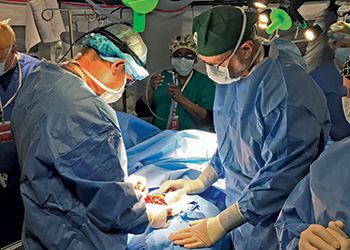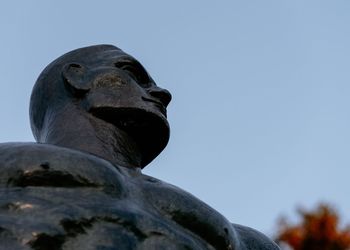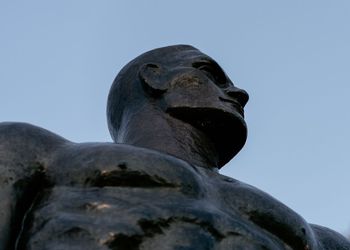Spartan Story: A Test of Faith
Dr. Burandt and other medical professionals worked 24/7 to save civilians and ISIS fighters.

Timothy Burandt, in his own words a simple “country doctor,” found the faith that led him to go to Iraq put to the test when after arriving in the major northern city of Mosul, he heard what ISIS had done to the people there.
He recalled:
ISIS would go into a neighborhood of Mosul and they would extract the families, and they would go to a local market or an open area or a soccer field. They would put the men on one side and the women and the children on the other and—just to get their attention—ISIS would shoot a few of the mothers and a few of the kids, randomly, if you can imagine. Then they’d point their guns to the fathers and say: ‘you will either come fight for us, or we will (kill) your family right now.’
After arriving in Mosul in December 2016, Burandt, a surgeon who lives in Trenton, initially treated mostly women and children. But later he treated Iraqi forces—and ISIS fighters—who were injured in battle.
“And as you can imagine, that really breaks some of the ethical or moral boundaries that you set for yourself,” he said, “taking care of somebody who may have just been responsible for hurting somebody that you just got done taking care of.”
Nevertheless, Burandt finished a one-month stint at a 17-tent hospital that had been set up by Samaritan’s Purse, a nondenominational evangelical Christian organization that provides relief throughout the world. And he returned in April 2017 for another month to treat more patients, as well as to help train local medical personnel. (In July 2017, Iraq’s military forces regained control of Mosul from ISIS.)
“There’s something about just getting down to taking care of patients and only focusing on patients, not having to deal with bureaucracies and electronic medical records and all of the business of medicine,” said Burandt, who also leads an annual medical excursion of his own to help the needy in Honduras.
“So, when this opportunity came, even though it was a very dangerous opportunity, I just felt compelled. We’re told both to love our God and to love our neighbors. And maybe that’s a pretty extended definition of neighbor, but north Iraq is our neighbor, as well,” said Burandt, who in 1978 earned a bachelor’s degree in natural science and in 1982 earned a doctor of osteopathy degree, both at MSU.
Burandt said his own faith, as well as that of others, gave him the courage to decide to make the trip and to perform medical care under dangerous conditions.
“My wife, she’s a prayer warrior and she had an absolute peace about me going, even though I was probably in one of the more dangerous places in the world,” he said.
So, when you have that kind of a family that supports you, my church, a lot of my friends praying for me, when you have that kind of hedge of protection, you’re just able to go and do what is almost the impossible.
For more: samaritanspurse.org
Contributing Writer(s): Tom Kertshner



